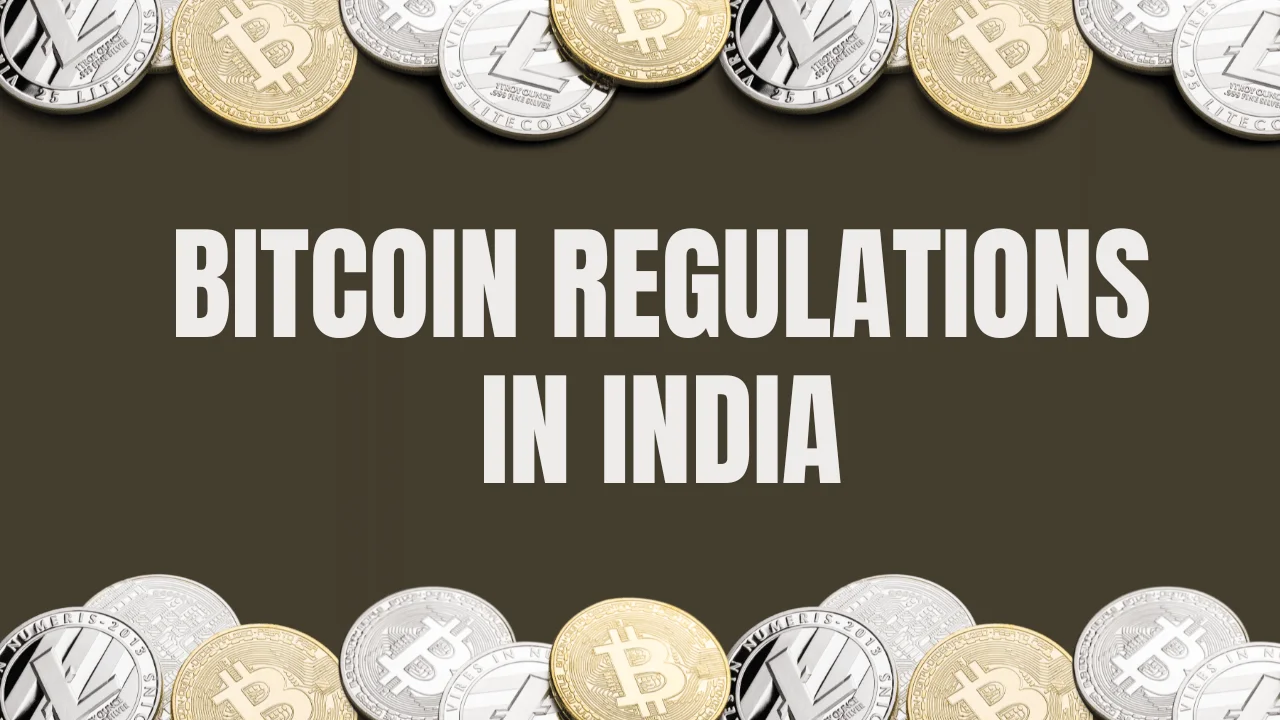A fascinating study of developing regulatory frameworks and burgeoning technological adoption can be found in the digital currency landscape in India, with Bitcoin at the forefront. This article seeks to clarify the intricate relationship between innovation and governance by exploring the intricacies of Bitcoin regulations in India. Stakeholders are enthusiastic about the potential of cryptocurrencies in the nation, and trust is fostered as a result of the emphasis on important regulatory elements.
India is taking a cautious and scrutinizing approach to Bitcoin and other cryptocurrencies. Although the government has not officially recognized cryptocurrencies as money, it has also not banned their ownership or trading. A more comprehensive approach to balancing innovation, financial stability, and consumer protection is reflected in this nuanced stance. Domestic priorities, changes in technology, and international trends all contribute to an ever-evolving regulatory landscape.
Regulatory Framework
Legal Status
There is a special place in Indian law for cryptocurrencies. Their trading and possession are still considered legal, even though they aren’t officially recognized as legal tender. This position is a part of a larger effort to learn about and incorporate digital currencies into the current financial system in a way that doesn’t threaten the economic stability of the country.
Government and RBI’s Advisory Role
The Indian government and the Reserve Bank of India (RBI) are crucial actors in determining the Bitcoin regulatory environment. The Reserve Bank of India has warned the public about the dangers of cryptocurrency and the abuse it could facilitate. There has been no effort to outright ban their usage, suggesting a cautious but open stance toward digital currencies, despite these warnings.
Taxation Policies
Crypto regulation in India must take taxes into consideration. A flat 30% tax on cryptocurrency transaction profits and a 1% Tax Deducted at Source (TDS) on all transactions have been imposed by the government. In an effort to control the flow of capital in the cryptocurrency market, the government has enacted some of the strictest regulations in the world.
Consumer Protection Measures
All of India’s regulatory initiatives revolve around safeguarding consumers. Investors face substantial risks due to the complexity and volatility of cryptocurrencies. The government’s ongoing initiatives to educate the public, enforce rigorous KYC (Know Your Customer) standards, and monitor exchanges for fraudulent activities demonstrate its commitment to creating a safe trading environment.
Anti-Money Laundering Efforts
The fight against money laundering is an important priority for regulators across the globe, including in India. Preventing cryptocurrency use in illicit financial transactions is a major factor in the country’s stance on the subject. To prevent cryptocurrency from being used as a vehicle for illicit financial activities, India is implementing stringent regulations to adhere to international anti-money laundering standards.
Future of Cryptocurrency Regulation

Technological Innovations
In response to the lightning-fast development of cryptocurrency-related technologies, India’s regulatory framework is undergoing constant revision. India intends to establish itself as a frontrunner in the digital currency sector by cultivating an atmosphere that promotes innovation while guaranteeing strong security measures.
Blockchain Adoption
The Indian government is very interested in blockchain technology, which is the foundation of cryptocurrencies. More and more industries are looking for ways to incorporate blockchain technology, which has the ability to improve security, efficiency, and transparency, beyond just cryptocurrencies.
Global Collaboration
When it comes to cryptocurrency regulation, India is moving in the direction of international norms. India will continue to play a major role in the global digital currency ecosystem as long as it collaborates with international bodies and follows global compliance standards.
Investor Education
Knowing the potential downsides and upsides of cryptocurrencies is essential information for investors to have. Government and regulatory agencies are stepping up their efforts to disseminate reliable data so that investors can make educated choices.
Protecting Cryptocurrency Transactions from Cyber Attacks

Strengthening Digital Asset Security
The importance of safeguarding digital assets has grown in tandem with the popularity of cryptocurrencies. India is making great strides to strengthen its cybersecurity measures, making the country more resistant to cybercrime. A secure digital environment for businesses and consumers to transact in cryptocurrency is being sought after through the implementation of advanced encryption techniques and secure transaction protocols.
Regulatory Oversight
To make sure they are completely secure and transparent, cryptocurrency exchanges in India are regulated very strictly. The fight against financial crimes and the protection of user assets requires these platforms to establish rigorous data protection measures, perform frequent security audits, and report suspicious activities.
User Authentication Practices
To protect digital assets, it is essential to encourage users to use strong authentication practices. To make cryptocurrency transactions more secure and less vulnerable to hacking, it is recommended to use hardware wallets, biometric verification, and two-factor authentication (2FA).
Collaboration with Tech Industry
To better understand and address cybersecurity risks, the Indian government and regulatory agencies are teaming up with the tech sector. To keep one step ahead of cybercriminals and protect the cryptocurrency ecosystem, this partnership entails exchanging information, best practices, and technical solutions.
Blockchain Technology Advancements

Innovation and Efficiency
Blockchain technology’s revolutionary potential extends well beyond digital currencies, and India is no exception. The goal is to drive innovation and efficiency across industries by exploring its applications in finance, healthcare, and supply chain management, among others.
Supporting Startups
Financing, mentorship programs, and regulatory guidance are all ways the government is helping blockchain startups. Startups will be able to create and execute blockchain solutions that can aid in economic growth and technological advancement thanks to this initiative’s goal of encouraging innovation.
Regulatory Sandbox
Startups and established businesses can put their blockchain innovations through their paces in a controlled setting thanks to the regulatory sandbox. To guarantee compliance and safety, regulators can evaluate the effects and feasibility of blockchain applications using this method before rolling them out on a larger scale.
Blockchain for Governance
The use of blockchain technology in government has the potential to increase openness, decrease corruption, and simplify bureaucratic procedures. To boost transparency, safety, and public participation in government processes, India is investigating blockchain’s potential use in public services.
Looking Forward
The regulatory framework in India will change in tandem with the ever-changing cryptocurrency and blockchain landscape. The regulatory climate is maintained in a way that promotes growth, innovation, and security because the government is dedicated to interacting with stakeholders, including investors, companies, and foreign partners.
International Cooperation
In an effort to standardize cryptocurrency laws, India is taking part in international forums and working with other countries. To facilitate international payments and collaboration in the digital currency domain, India is working to bring its regulatory policies in line with international norms and practices.
Balanced Regulatory Approach
Finding a happy medium between old and new ways of doing things is the objective. While still guaranteeing strong consumer protection and market integrity, India’s regulatory framework is built to be adaptable enough to accommodate new developments in the blockchain and cryptocurrency industries.
Continuous Learning and Adaptation
As the world of digital currencies evolves at a dizzying pace, the Indian government and regulatory bodies are determined to keep learning and adapting. In order to foster long-term growth and innovation in the blockchain and cryptocurrency industries, India plans to keep up with international trends and advancements in technology.
Also visit: Bitcoin Trading India: Secure & Fast
Conclusion
Navigating the complex terrain of innovation and regulation, India’s policymakers are carefully orchestrating a path forward for digital currencies like Bitcoin amidst the ever-evolving landscape. The discussions surrounding Bitcoin Regulations in India are emblematic of the delicate balance between fostering an open, safe, and innovative environment while addressing concerns and risks associated with cryptocurrency. As India charts its course, strategic policymaking will be crucial to harnessing the potential of cryptocurrencies and leveraging them to propel the nation’s digital economy into the future.
India is leading the way in responsible cryptocurrency regulation by embracing change and placing a priority on consumer protection, anti-money laundering measures, and technological innovation. Opportunities and challenges abound on the road ahead, but India can position itself to become a global leader in digital currency with a balanced and future-oriented regulatory strategy.

Brandy Stewart, an enchanting wordsmith and seasoned blogger, weaves compelling narratives that transport readers to uncharted territories. Infused with perceptive viewpoints and dynamic storytelling, Doris exhibits a command of language that enthralls both hearts and minds, leaving a lasting mark on the literary panorama.

